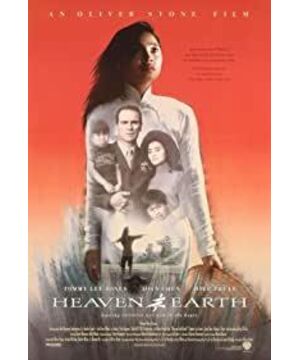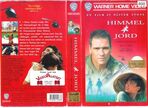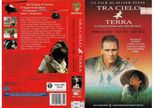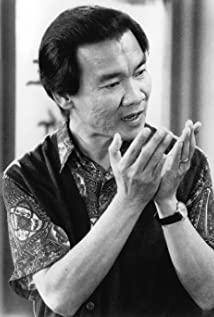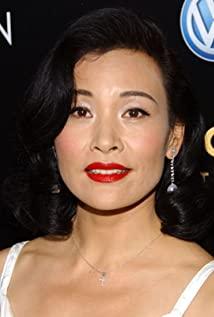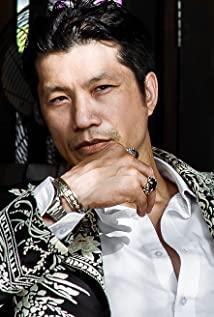After Oliver Stone made Field Platoon (1986), he made his second Vietnam War film, Born on the Fourth of July, in 1989, based on the autobiography of Vietnam veteran Ron Covec. "Born on the Fourth of July" protagonist Covic was born on Independence Day, which he and his parents are proud of. As an adult, Kovik actively signed up to fight in Vietnam, where he wanted to win honor for the country. Kovik fought valiantly in the Marines, and in a village on the Gua Viet River, his squad slaughtered an entire room of women and children. He was wounded in a battle in 1986 and was completely paralyzed from the chest down. When he returned to his hometown in a wheelchair, he was not greeted as expected. He was amazed that even his own brothers and sisters did not agree with his patriotic behavior that he almost died for the country, resulting in frequent quarrels at home. The inconvenience of mobility and sexual dysfunction caused by high paraplegia has made him very distressed, and the incomprehension of his war behavior by his family and Chinese people has made him even more restless. During his convalescence in Mexico, he saw the same despair as them from the disabled veterans. At the Republican National Convention held in Miami in 1972, he and his comrades spoke out to the society about the evils and misfortunes of war with their own experience. Kovick healed the wounds of his soul with a clear understanding of the war.
The experience of the Vietnam War and his thinking about the war made Stone addicted to the creation of such themes. In 1993, Stone based on the works of the Vietnamese-American female writer Chen Shi Li Li's "The Time of the Transposition of the Earth" and "Children of War, "Peaceful Mother" two autobiographical novels adapted and directed his yet another Vietnam War film "Heaven and Earth". Stone faced the war head-on in "Field Platoon", and in "Born on the Fourth of July", although he also showed the battlefield head-on, but more space was placed after the Vietnam War soldiers left the battlefield, including in the rear hospital, the Mexican honorary Rehabilitation Nursing Homes and Life in America's Hometown. In "Heaven and Earth", he tells the war from the perspective of a Vietnamese woman. The film does not directly involve the battlefield, but extends the camera to the lives and experiences of the South Vietnamese people during the war, and the American soldiers in the eyes of the Vietnamese. , and the living conditions of a large number of American Vietnamese family members during and after the war caused by the war, these three films from different perspectives constitute Stone's "Vietnam War Trilogy".
One notable commonality of the "Vietnam War Trilogy" is that the three films are all adapted from the personal experiences of people who have come from the war, from which we can not only see Stone's unforgettable memory of the Vietnam War as a veteran, but also experience Stone, as a director, pursues the truth of art with good intentions.
On the premise of showing war, "Heaven and Earth" shows the different social backgrounds, cultural backgrounds and ideological beliefs of the East and the West represented by the United States and Vietnam, as well as the national explanations of the war under these different backgrounds.
Stone creates a very beautiful and peaceful environment for the film. At the beginning of the film, what people see is a picturesque village, in the boundless fields full of vitality, gentle breeze, rolling rice waves, and whirling green shadows, quaint dwellings are hidden. The Li people who have lived on this land for thousands of years have worked diligently and happily under the protection of their heaven and earth parents for thousands of years. In this unsettling peace, the story of the film is told. Such a peaceful and quiet atmosphere not only creates a mysterious reverie, but also forms a great contrast with the disasters brought by the war to this land. The opening of the film not only makes the Vietnamese sons and daughters born and raised in Sri Lanka have endless nostalgia for this land, but also expresses the author's regret for the devastation of this beautiful place.
After ten years of war, when the U.S. military withdrew from Saigon in 1975, there were hundreds of thousands of Vietnamese family members involved with them. The protagonist of the film, Feng Lili, was one of them. After the U.S. military entered Vietnam, she was originally a good daughter of her parents. It was the split between North and South Vietnam caused by the U.S. government and the puppet regime in the South that it supported, and the resulting war caused the disintegration of millions of farming families like the Feng family. and got involved in the war. Li Li lives in a relatively closed village. She came to her hometown from North Vietnam. Her brothers went to Hanoi to join the People's Army. Li Li supported North Vietnam's struggle to reunify the motherland, collected intelligence for them, and was arrested by the U.S. puppet army and sentenced to prison. Forcing a confession, being humiliated by the Viet Cong for being suspected of collaborating with the enemy, Li Li's innocent victimization is regrettable. Afterwards, she left her hometown and came to Saigon to work as a servant. After she was pregnant with the master's child, she was kicked out of the house by her wife. But so far, her misfortune and experience have not yet constituted a deeper inner conflict and awakening of the soul. It was not until she met Steven that she thought she had found a home, married him and had children, and went to the United States with him, that Li Li realized the obstacles between them and her own inner obstacles. When Li Li found out that Steven was still selling weapons for the army after returning to China, the barrier between her and Steven became insurmountable. A kind of national pride, a kind of hostility to the invaders, made her resolutely give up the "happy life" she once dreamed of, choose an independent personality, and take the initiative to deal with her destiny.
When Li Li worked hard to start a business in the United States, raised her three children and brought them back to their hometown in Vietnam to find their roots, she encountered several different attitudes: young people in Saigon (now Ho Chi Minh City) regarded them as decent Americans. to envious eyes. The men, women and children of Kiri Village see them as strange and wealthy foreigners. Although the elder brother Yabang regards her as his younger sister, he does not eat the food that Li Li brought back, and does not accept her gifts. He said she married their enemy while they fought bloody battles ahead. After many years, many things have been forgiven, but Li Li does not know how much the Americans have caused the Vietnamese to suffer. During the war, they pinned their hopes on the future, but did not know where the future was. They keep dying, like ants under an elephant's feet. They persist in fighting, not because they are particularly brave, but out of helplessness, just because of freedom. Because Li Li married an American, the Feng family suffered a lot, her mother was old, and the villagers were reluctant to help her. When Yabang returned home to find his mother after the war, she was naked, her house was in tatters, her farm tools were stolen, and her livestock was killed. Now that life has just improved, Li Li's return home is likely to cause the villagers to treat them differently. Ami, her older sister, said that when she rebuilt her home after the war, she felt as if she had been raped and then formed a family. But her mother welcomed Li Li's return with open arms. She believed that the war had created many cemeteries, and there were no enemies in the cemetery. She was happy to see her daughter grow up, from low tide to high tide, from poor to rich, from sadness to happiness, from beggar to lady. She thinks her daughter sees things that others can't, and the mother is proud of her daughter. And Li Li's summary of herself is like her confession: her life is destined to be bounded by the fate of the South and the North, the East and the West, peace and war, Vietnam and the United States, and the destiny between the sky and the earth. The only thing she can do is to forget the trauma in her heart and raise her son as her father taught her. What should remain in her heart forever is kindness and love for her ancestors and her family, so that she can hear the song in her heart. When the film was filmed, Li Li settled in California with her children, and through the East-West Foundation, she has helped Vietnam build several hospitals to help her compatriots promote health.
Marine Corps Sergeant Steven is another type of Stone's pen. He has had quite a bit of experience before, because he owes money to pay off his debts and then puts on a military uniform and becomes a professional killer. His specialty is using weapons and killing people, so the Marines assigned him to carry out black ops. This is a kind of psychological warfare that is different from the frontal contact between the two sides of the jungle war, and the action is mostly in the dark night. Sometimes Steven kills three or four people in one night. He kills everyone. The farmers who plough the fields and the wealthy people who support the Viet Cong are all among his actions. His method of killing was cruel. After killing, he dug out the heart and liver of the deceased and dumped the corpse on the road so that he could not go to see the Buddha (that is, the soul could not ascend to heaven), cut off the testicles of the deceased and stuffed them into the mouth of the deceased, sewed his lips on the corpse bed, and then Put these things on the head of the Viet Cong to confuse the public. In Vietnam, he sold drugs, sold slaves, and smuggled firearms. The more he kills, the more the Marines call him to run black ops. He felt like he was bitten by a shark, and if he didn't struggle, he would be swallowed in an instant. Once his Vietnamese girlfriend was killed and her head was cut off. The murderer used the same method as him. It touched him a lot, he felt like he was crazy, he was in pain, it was like hell. After getting to know Li Li, he wants to change his past, change his way of life, have a stable home, be a good husband and a good father. However, the promise of the Marine Corps "high salary in three years" made him unable to stop, and he continued to sell guns to various countries and teach how to use weapons. His hands were already stained with sin, and old debts were not yet filled with new ones. He didn't have the courage to face up to his past and make up his mind. Although he tried his best to justify his actions, he was never able to justify it. Cruelty and cowardice, sin and conscience devoured his soul. Stone had no sympathy for him, and his fate could only be a death sentence.
The director used flashbacks many times in the film to describe the beliefs and beliefs of the protagonist: Li Li was captured by the southern government army and tortured. For the first time, the resolute face of her younger brother Yaxiu on the battlefield and the kind face of the Buddha appeared in front of her eyes; when the Viet Cong accused her of collaborating with the enemy, her kind father and mother appeared in front of her; after selling her body to the two US troops, she took a shower with tears in her eyes. Presenting Ash in battle, her working mother, her first man, Ann, and her own shadow lying in the grave and buried in the earth; Li Li flashed past her hometown when she had sex with Steven for the first time Green fields and barren land, injured villagers and Ash on the battlefield; Li Li was in pain after learning that Steven sold guns, what she saw was the flames from the flame launcher, the whole village worked, the whole village The scene of people fleeing; when Steven was murderous and used the muzzle against Li Li's head, the flames from the flame launcher flashed again in front of Li Li's eyes, and she was raped, imprisoned, beaten, electrocuted, and The scene where the villagers were killed; after divorcing Steven, Li Li went to the temple to worship Buddha, and the master persuaded her to learn to forgive. Steven did a lot of sins and wanted to give him a chance to atone. Help him, and help yourself. Listening to the master's teaching, Li Li saw the scene of her childhood visiting the Buddha with her mother; when Steven took away the two children, Li Li relived the life of her first love with him on the phone, begging him to keep the children , the picture shows the scene when they first fell in love. The film uses flashbacks in all key places to tell Li Li's feelings. This way of expressing only mirror words without voice is not only not complicated, but also accurately tells Li Li's mentality and feelings at every moment. This strong infectious force has an effect that language cannot express in understanding the protagonist's encounter and emotional process.
The scenes involved in the film are as real as possible, especially the scene in which the shells hit the US military base and Li Li escaped with the children. The film shows that she was dragging the big one, holding the small one, and was in a state of embarrassment. She finally got on the plane with the help of Steven, and was kicked off by the American soldiers. How could they let the three Vietnamese take up at the last moment? What about three Americans' chances to escape! Li Li and a large group of family members of the military were crowded together in a temporary shelter. They anxiously asked about their husbands and relatives, and wanted to take them out of Vietnam as soon as possible. The whole scene shows the panic and chaos of the US military and their families waiting to be transferred, which is a true portrayal of the rush to flee for their lives when the United States was defeated in 1975. The film shows the street scenes of Saigon and Langang, where prostitutes, black market peddlers and people of various colors shuttle in front of the US military base, noisy and disorderly, which truly reproduces the chaotic colonial conditions of Vietnamese cities and towns occupied by the US military.
Oliver Stone ends the film with Feng Lili's own narration: "The monk said that everything has a reason, and suffering will only bring us closer to God. Teach us to be strong when we are weak, to be brave when we are afraid, and to be wise when we are lost. Give up. The undeserved, lasting victory is won in the heart, in this country or in that country." Years have passed since the war, and Oliver Stone really wanted people to settle the war with oriental beliefs pain?
In any case, Oliver Stone speaks honestly about war in his cinematic style, his zeal, his condemnation and distaste for war, and his desire for peace, all in the "Vietnam Trilogy" It shows that people have reason to pay tribute to him.
View more about Heaven & Earth reviews


